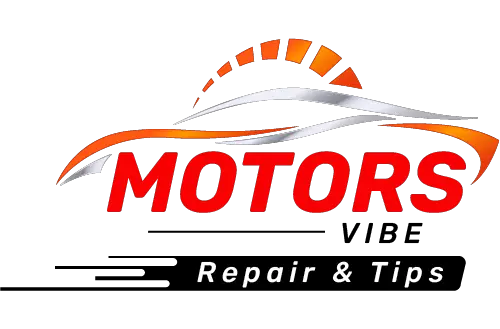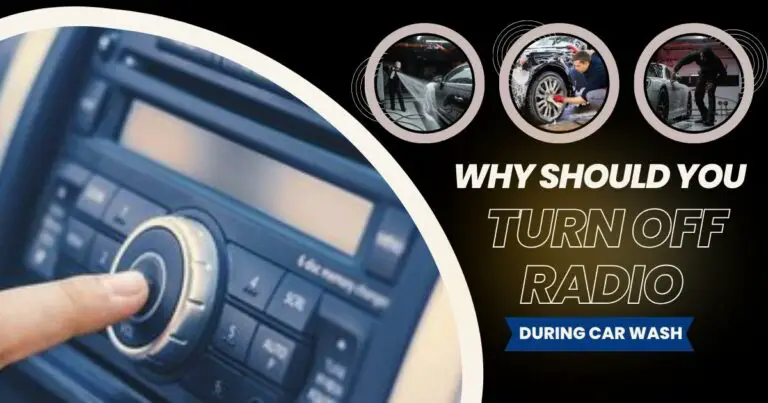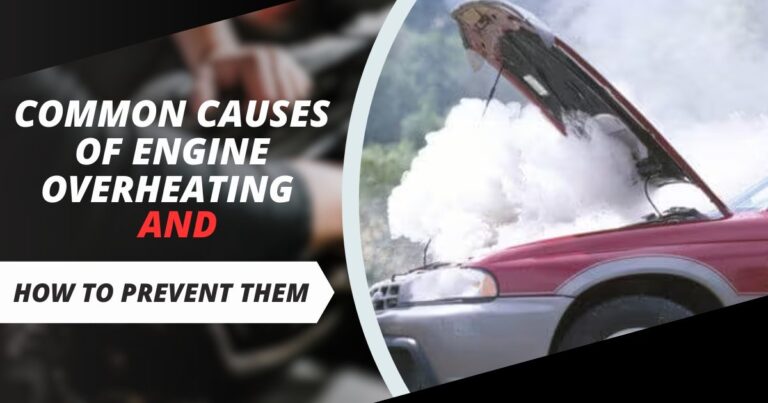Why is My Car Jerking After Oil Change? Oil Change Woes
Picture this- You’ve just treated your car to a much-needed oil change, ensuring it’s well-nourished and primed for peak performance. You slide into the driver’s seat, eagerly anticipating the smooth ride ahead, only to be jolted by an unexpected sensation—the car jerks! As your heart skips a beat, you can’t help but wonder, ‘Why is my car jerking after oil change?’
Experiencing a car jerking or lurching after an oil change can be both perplexing and concerning for any vehicle owner. Many car owners have experienced the perplexing phenomenon of their vehicles suddenly jerking and jolting after a routine oil change. So why does the car suddenly exhibit jerking movements right after this seemingly straightforward procedure?
Several factors can contribute to this unexpected behavior, and understanding them is crucial in order to diagnose and resolve the issue. In this article, we will explore some common reasons why your car might jerk after an oil change, shedding light on potential causes and the steps you can take to resolve the issue.
Let’s kick-off!

Reasons for Car Jerking After Oil Change
While an oil change is typically expected to improve performance, sudden jerking can leave you wondering what went wrong. There could be several reasons behind this phenomenon, ranging from simple oversights to more complex mechanical issues. Common culprits include;
Incorrect oil type
Using an incorrect oil type can often cause a car to jerk after an oil change. The oil used in a vehicle serves multiple purposes, including lubricating engine components, reducing friction, and assisting in heat transfer. Different engines require specific types of oil with particular viscosity and additives to ensure optimal performance.
If you use oil that does not meet the manufacturer’s specifications or is of the wrong viscosity, it may not provide adequate lubrication or perform optimally in your engine. Insufficient lubrication can lead to increased friction between moving parts, causing jerking or jolting sensations as the engine struggles to operate smoothly.
Furthermore, certain oils are designed to work with specific engine technologies, such as those found in high-performance or specialized vehicles. Using the wrong oil type in such engines can disrupt their intricate systems and result in abnormal behavior, including jerking motions.
Low oil level
Low oil levels can also cause a car to jerk after an oil change. When the oil level is insufficient, it can lead to inadequate lubrication of the engine’s components, resulting in increased friction and car jerking. Besides, the lack of enough sufficient lubrication can affect the engine’s performance negatively.
That’s not all. Low oil levels can cause the engine to overheat, further intensifying the friction and jerking. Oil pump starvation may also occur, as the pump struggles to circulate the insufficient amount of oil, leading to decreased oil pressure and compromised lubrication. Extended operation with low oil levels can cause severe damage to engine components, exacerbating the jerking issue.
Contaminated oil
Contaminated oil refers to oil that has been polluted with foreign substances or has deteriorated, losing its effectiveness. If the new oil is contaminated with dirt, debris, or old residue, it can interfere with the smooth operation of engine components.
In addition, these contaminants can compromise the oil’s lubricating properties, resulting in inadequate lubrication of engine components. The insufficient lubrication can increase friction and cause the engine to jerk or run roughly.
Contaminated oil can also lead to accelerated wear and damage to engine components. Ideally, the abrasive particles or degraded additives in the oil can cause increased friction and wear on critical engine parts. This can in turn lead to irregular engine performance, including jerking or hesitation.
Clogged oil filter
The oil filter plays a crucial role in the lubrication system of an engine by filtering out contaminants and debris from the oil. When the oil filter becomes clogged, it restricts the flow of oil through the filter element. As a result, the engine may not receive an adequate supply of oil, especially during high-demand situations such as acceleration or high RPMs. The insufficient oil flow can lead to inadequate lubrication of engine components, causing increased friction and potential jerking.
A clogged oil filter can also affect oil pressure. As the filter becomes clogged, it causes the restriction of oil flow, which can cause a buildup of pressure on the upstream side of the filter. This can result in a decrease in oil pressure downstream of the filter, potentially affecting the operation of various engine components, leading to jerking or occasional hesitation.
Faulty ignition system
The ignition system is responsible for igniting the fuel-air mixture in the engine’s cylinders, which powers the combustion process. Issues with the ignition system, such as malfunctioning spark plugs or ignition coils, can cause misfires in the engine. Misfires can, in turn, lead to jerking motions as the engine struggles to run smoothly.
It’s important to note that a faulty ignition system issue may not be directly related to the oil change itself. However, the symptoms of a faulty ignition system may become more noticeable after an oil change due to other maintenance procedures or vehicle inspections performed during the service.
Loose oil drain plug
An incorrectly tightened oil drain plug can, in certain cases, cause a car to jerk after an oil change. While it is not a common or direct cause, it is not uncommon for an improperly tightened oil drain plug to indirectly contribute to engine issues that result in jerking or rough running.
For instance, if the oil drain plug is not tightened properly, it can lead to oil leakage. Insufficient oil levels due to a leak can, in turn, result in inadequate lubrication of engine components, leading to increased friction and jerking or rough running.
In addition, oil leakage caused by an incorrectly tightened drain plug can also result in reduced oil pressure. Inadequate oil pressure can impact the proper functioning of various engine components, affecting their performance and potentially leading to jerking.
How to Troubleshoot a Car Jerking After an Oil Change
Experiencing car jerks when accelerating after oil change or roughness in a car’s performance after an oil change can be a cause for concern. That said, here are some troubleshooting steps to help you identify and resolve the issue;
- Check oil level and quality- Start by ensuring that the correct amount of oil was added during the oil change and that the oil is of the recommended viscosity and type for your vehicle. You can verify the oil level using a dipstick and confirm it falls within the acceptable range.
- Inspect for oil leaks- Look under the car for any signs of oil leaks around the oil filter, drain plug, or other components. Leaks can lead to insufficient lubrication, causing occasional jerking or rough running now and then.
- Verify proper filter installation- Check that the oil filter is installed correctly and tightened securely. A loose or improperly installed filter can result in oil starvation, leading to engine performance issues including occasional jerking.
- Inspect spark plugs and ignition system- As we stated, car jerking can also be caused by faulty spark plugs or an issue with the ignition system. If the problem occurs after an oil change, it may be coincidental and related to the ignition system. As such, you may want to consider checking the spark plugs, ignition coils, and related components for wear, damage, or loose connections.
- Examine the air intake system- Ensure that the air filter is clean and properly installed. A clogged or dirty air filter can restrict airflow, affecting the engine’s performance and causing jerking or hesitation.
Frequently Asked Questions
Can oil change cause a misfire?
Yes. An oil change can potentially cause a misfire if the oil used is contaminated or if there are issues with the ignition system or timing components. However, it’s important to note that misfires can also occur independently of an oil change.
Engine misfires can be caused by various factors such as faulty spark plugs, ignition coils, fuel injectors, or sensor issues. Therefore, if you experience a misfire after an oil change, it’s advisable to have your vehicle inspected to determine if it is related to the oil change.
Can oil change affect acceleration?
Yes. An oil change can have a significant impact on your car’s acceleration and performance in general. Fresh, clean oil helps maintain engine efficiency and proper lubrication, which can positively impact acceleration. Conversely, old or degraded oil can increase friction, and reduce engine efficiency, thereby resulting in sluggish acceleration.
Also Read: Spare Tire Making Noise- What’s Causing That Clatter?
Conclusion
The relationship between a car needing an oil change causing your car to jerk may not be apparent, but it is critical to consider potential contributing factors. However, it’s crucial to approach the situation with an open mind, as jerking and acceleration problems can stem from various causes unrelated to the oil change. By addressing the underlying issue, you can bid farewell to those frustrating jerks and regain the smooth and enjoyable driving experience you desire.







